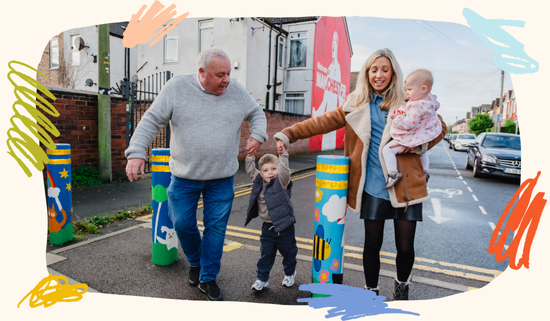What do foster carers do?
All children and young people need food, clothing, shelter, love and safety, but those in foster care may have additional needs because of their life experiences. Whatever the individual circumstances, these children will be experiencing mixed emotions about not being able to live with their parents.
Foster carers are an important role model, offering love, help and patience. Foster carers need to be sensitive, empathetic, and resilient in their approach to supporting the children and young people they care for.
Foster carers provide…
- a welcoming space.
- a safe and supportive home.
- vital care and stability.
- a nurturing environment.
- emotional support.
- practical assistance, guidance, and encouragement.
- additional support to help a child thrive.
Foster carers help a child…
- adjust to their new environment.
- heal from the trauma they may have experienced.
- maintain their identity through promoting their culture, religion, language and heritage.
- ensure they have a sense of belonging and security throughout their childhood and as they navigate their formative years.
- learn about the importance of positive relationships and trust.
- plan for the future.
- achieve the best they can in their education, social and emotional wellbeing.
Children and young people have different routines based on whether it's a school day, the weekend or the school holidays.
A foster carer’s daily activities generally include:
- Keeping a warm, clean and safe home.
- Involving the child in family life.
- Having fun and enjoying time together, ensuring the child has the opportunity to play, relax, and lead a healthy lifestyle.
- Preparing nutritious meals.
- Helping babies and younger children to get washed and dressed or teaching life-skills to older children.
- Dropping off and picking them up from school.
- Helping with homework.
- Taking them to after-school or weekend activities.
- Taking them to medical appointments.
It is important for children and young people in foster care to keep in touch with their own family - mum, dad, brothers, sisters, aunts, uncles or grandparents. This is often by phone, video calls and through regular meetups, known as family time.
Foster carers therefore play a big part in supporting, promoting and maintaining this positive relationship between the child and their family.
Foster carers receive extensive and ongoing training to help them prepare and develop in their role, and to care for the children that come to live with them.

.webp)





